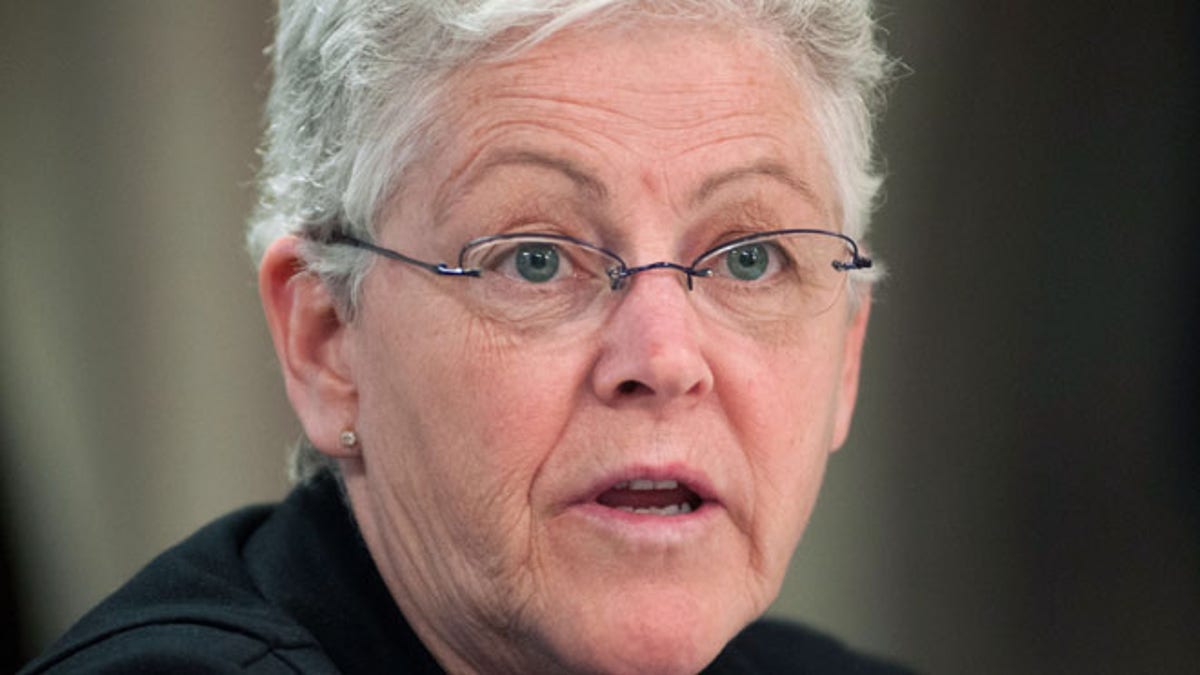
Feb. 28, 2014: EPA Administrator Gina McCarthy speaks with coal industry leaders in Beulah, N.D. (AP)
In what critics are describing as a government land grab, the Environmental Protection Agency proposed a change Tuesday to the Clean Water Act that would give it regulatory authority over temporary wetlands and waterways.
The proposal immediately sparked concerns that the regulatory power could extend into seasonal ponds, streams and ditches, including those on private property.
"The ... rule may be one of the most significant private property grabs in U.S. history," said Louisiana Sen. David Vitter, the top Republican on the Senate Environment and Public Works Committee.
The EPA proposal would apply pollution regulations to the country's so-called "intermittent and ephemeral streams and wetlands" -- which are created during wet seasons, or simply after it rains, but are temporary.
At issue is whether the smaller streams and wetlands are indeed part of the "waters of the United States."
The Supreme Court ruled on the issue in 2001 and 2006. The second ruling restricted the federal government's authority by stating such waters must be "relatively" permanent or continuously flowing and sizeable, like "oceans, rivers, streams and lakes."
In defending the proposed change, the EPA and the Army Corps of Engineers said Tuesday that determining Clean Water Act protection for streams and wetlands became "confusing and complex" following the high court decisions.
"For nearly a decade, members of Congress, state and local officials, industry, agriculture, environmental groups, and the public asked for a rulemaking to provide clarity," the agencies said in a joint statement.
They also argued such waters "form the foundation of the nation's water resources" and the changes would not extend the federal government's reach. "To be clear, our proposal does not add to or expand the scope of the waters historically protected under the Clean Water Act," EPA Administrator Gina McCarthy said in a video accompanying the announcement.
The EPA also said roughly 60 percent of "stream miles" in the country only flow seasonally or after rain but have a "considerable impact" on downstream waters -- and that about 117 million Americans, or one in three, get their drinking water from public systems that rely in part on such streams.
The proposal is now subject to a 90-day comment period in which federal officials vowed to conduct a "robust" public outreach effort that will include discussions across the country to gather the input needed "to shape a final rule." The agencies said the proposed change is supported by the latest peer-reviewed science.
However, Vitter accused the EPA of "picking and choosing" its science while trying to "take another step toward outright permitting authority over virtually any wet area in the country."
He also warned the proposed change, if approved, would open the door for more environmental groups suing private property owners.
Sen. Lisa Murkowski, R-Alaska, echoed those concerns, saying the change "could result in serious collateral damage to our economy."
"[I]t appears that the EPA is seeking to dramatically expand its jurisdictional reach under the Clean Water Act," she said in a statement. The senator added that the change could have a huge impact on Alaska.
"If EPA is not careful, this rule could effectively give the federal government control of nearly all of our state -- and prove to be a showstopper for both traditional access and new development," she said.












































